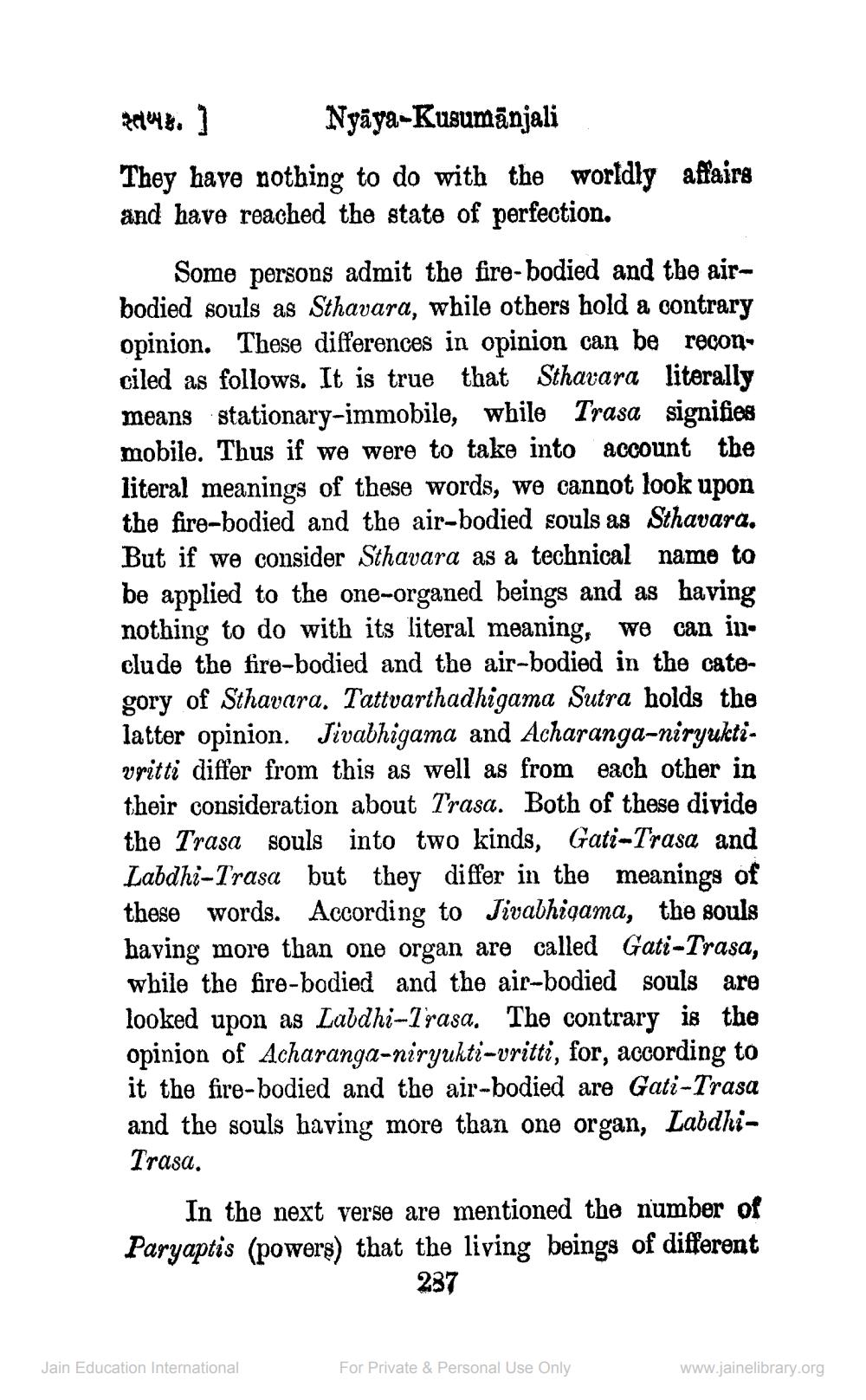________________
Zelen8. ] Ngāya-Kusumānjali They have nothing to do with the worldly affairs and have reached the state of perfection.
Some persons admit the fire-bodied and the airbodied souls as Sthavara, while others hold a contrary opinion. These differences in opinion can be reconciled as follows. It is true that Sthavara literally means stationary-immobile, while Trasa signifies mobile. Thus if we were to take into account the literal meanings of these words, we cannot look upon the fire-bodied and the air-bodied souls as Sthavara. But if we consider Sthavara as a technical name to be applied to the one-organed beings and as having nothing to do with its literal meaning, we can include the fire-bodied and the air-bodied in the category of Sthavara. Tattvarthadhigama Sutra holds the latter opinion. Jivabhigama and Acharanga-niryuktivgitti differ from this as well as from each other in their consideration about Trasa. Both of these divide the Trasa souls into two kinds, Gati-Trasa and Labdhi-Trasa but they differ in the meanings of these words. According to Jivabhigama, the souls having more than one organ are called Gati-Trasa, while the fire-bodied and the air-bodied souls are looked upon as Labdhi-Irasa. The contrary is the opinion of Acharanga-niryukti-vritti, for, according to it the fire-bodied and the air-bodied are Gati-Trasa and the souls having more than one organ, LabdhiTrasa.
In the next verse are mentioned the number of Paryaptis (powers) that the living beings of different
237
Jain Education International
For Private & Personal Use Only
www.jainelibrary.org




